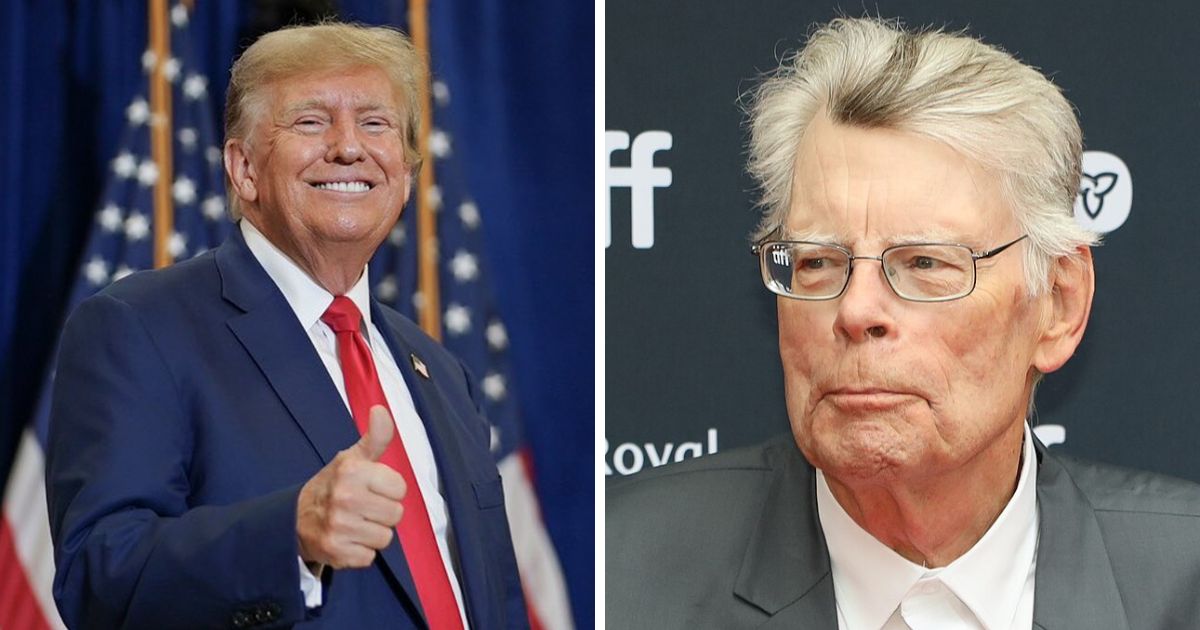Stephen King didn’t mince words. The horror icon tore into President Donald Trump over his latest riff on “free speech,” then twisted the knife with a mocking nickname, “trumpty-Dumpty,” that sent his post ricocheting across social media. In a late-night X post, King argued Trump isn’t fighting hate speech, he’s fighting speech he hates, namely critical coverage, before quipping that the quote he cited came from what “trumpty-Dumpty” calls “the failing New York Times.”
King’s swipe landed as Trump reignited a long-running grievance with the press, claiming that overwhelmingly negative coverage of him is effectively illegal. In recent remarks highlighted by CNN, Trump complained that “97 percent” of newscasts are against him and suggested that such negativity should be unlawful, a claim legal analysts immediately batted down as flatly incompatible with the First Amendment.
Mr. Trump himself has repeatedly made clear in recent days that he has a different goal. For him, it’s not about hate speech, but about speech that he hates — namely, speech that is critical of him and his administration.
— Stephen King (@StephenKing) September 21, 2025
CNN anchor Kaitlan Collins amplified the pushback on air, noting that freedom of speech and freedom of the press protect both positive and negative coverage. Her on-air framing captured the central absurdity that a president would imply critical reporting is not just unfair but criminal. That segment poured more fuel on an already raging online debate and gave King fresh material for his viral volley.
That quote is from what trumpty-Dumpty likes to call “the failing New York Times.”
— Stephen King (@StephenKing) September 21, 2025
The clash over “free speech” arrives amid a broader media firestorm that’s put broadcast standards, political pressure, and late-night TV on a collision course. ABC’s decision to bench Jimmy Kimmel Live! after Kimmel’s comments connected to the Charlie Kirk killing drew condemnation from across the industry and Capitol Hill, with critics blasting what they see as government-driven intimidation of a network show. The controversy widened when members of Congress, including Republicans, warned the FCC to back off after its chair’s saber-rattling toward ABC over Kimmel’s remarks.
In entertainment circles, the suspension triggered celebrity blowback and high-profile defenses of Kimmel, while media watchers questioned whether regulators or politicians had crossed a bright line. By the time John Oliver weighed in, calling the yank “laughably weak,” the Kimmel saga had morphed into a test case for how far officials can lean on broadcasters, and how quickly networks might flinch. That context made Trump’s “illegal coverage” gripe sound less like a hypothetical and more like part of a coordinated pressure campaign, at least to the president’s critics.
MacCallum: “Charlie said, ‘There is no such thing as hate speech.'”
Trump: “He might not be saying that now.” pic.twitter.com/THAtebvIRD
— The Bulwark (@BulwarkOnline) September 18, 2025
King, of course, has a long history of needling Trump online, often with punchy one-liners that go viral on impact. Whether it’s the latest nickname or a scathing aside about presidential fitness, his posts reliably spark a brawl in the replies and get picked up by outlets hungry for the next flashpoint in the culture wars. Recent months have been no exception, with the author resurfacing repeatedly to blast the administration’s rhetoric and priorities.
Where this latest critic goes next depends on two things: whether Trump keeps pushing the notion that negative coverage should be punished, and whether media companies keep blinking. For now, King’s “trumpty-Dumpty” jab has done what tabloid headlines and bestselling horror novels do best, crystallize a feeling in the pit of the public’s stomach and dare everyone to look away. And judging by the torrent of quote-tweets and primetime fact-checks, nobody is.









